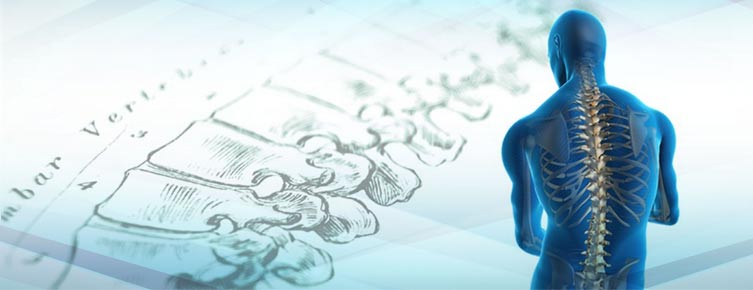Pain in the back of rapid onset is a familiar and disabling complaint. The aetiology in many instances is unknown. Suggested explanations include nipping of a fringe of synovial membrane, and part dislocation of an inter-vertebral joint, but no experimental or pathological evidence is offered in support. The only cause known with certainty is protrusion of an intervertebral disc, but this is responsible in only a proportion of cases.
Young adults and those in early middle age are especially liable to disorders of this group. The onset of pain is frequently associated with minor trauma, such as a jerk while getting on to a bus, or during movement like swinging a golf club, but sometimes pain comes on gradually during the day without any apparent cause, or is first noticed on waking up in the morning. Symptoms can be of any degree of severity; during a severe attack the patient is unable to move and cannot even change position in bed, but in a mild attack he may complain only of stiffness and pain on making certain movements.
Most patients recover spontaneously in the course of time but manipulation sometimes brings rapid relief and saves much pain. Rest, analgesics and physiotherapy remain the mainstays of treatment.
Chronic backache is one of the commonest complaints met in clinical practice and its causes are so diverse as to make systematic description more than difficult. The symptoms have little variety, physical signs are few, radiological findings are equivocal and pathological information is negligible. There is little agreement as to aetiology which is often speculative, and as to treatment which usually empirical. The situation is further obscured by the psychological aspect, which intrudes with every patient either as an actiological factor, or because of the mental effect of long standing pain. Successful treatment is based on the painstaking consideration of the individual patient and involves not only the temporary relief of pain, but also removal of the underlying cause, if possible. Causes of chromic backache include


The approach to a patient with chronic back pain is beset with pitfalls and the greatest caution must be exercised because an initial error can precipitate the sufferer onto the downhill path of chronic invalidism. The therapeutic armamentarium ranges from physiotherapy to fusion of vertebrae by operation, and it may involve merely a few days rest, or a complete change of occupation and the way of life maybe necessary. No rule of thumb methods suffice, and no routine treatment can be laid down even for clearly defined pathological conditions. The hackneyed saying that it is the patient and not the disease that is treated is never more significant than here. Each individual is a separate problem the key to which is concealed in a complicated equation with his mental make up, his environment and the physical lesion as the unknown factors. There are, in general, three methods of approach:
The majority of patients are first treated by mobilisation, and when that has failed immobilisation other methods are considered.
The Authorities at the hospital were very accommodating with all the assistance required in order to fulfil the procedure successfully. We felt we were looked after carefully and very well by the doctors, nurses and there assistance.
We would definitely keep in touch and hope such wonderful memories are cherished even of the cause was not good.
Good Wishes to everyone.
A couple of years back when my uncle Dr D K Tandon was diagnosed with Dementia, we were looking for a decent place where he can be taken care of. We chanced upon Vardaan Senior Citizen centre. I spoke to Dr Rekha Khandelwal and found her to be quite empathetic & considerate in her approach. My uncle is staying in Vardaan for last couple of years and we are grateful to Dr Rekha and her staff for taking care of my uncle.
My mother, Manorama Devi, was a patient of Parkinson’s disease and paralysis. We were managing her at home but due to complications of the illness and lack of trained caregivers I had to shift her to Vardaan Senior Citizens Home. Vardaan is truly home away from home and the entire staff under the able guidance of both Dr Rekha Khandelwal and Dr Rajiv Khandelwal works tirelessly to make the senior citizens feel at home.
© Copyright 2025 Vardaan, All Rights Reserved
Site by: Website Designing Company in Delhi & SEO Company in Delhi